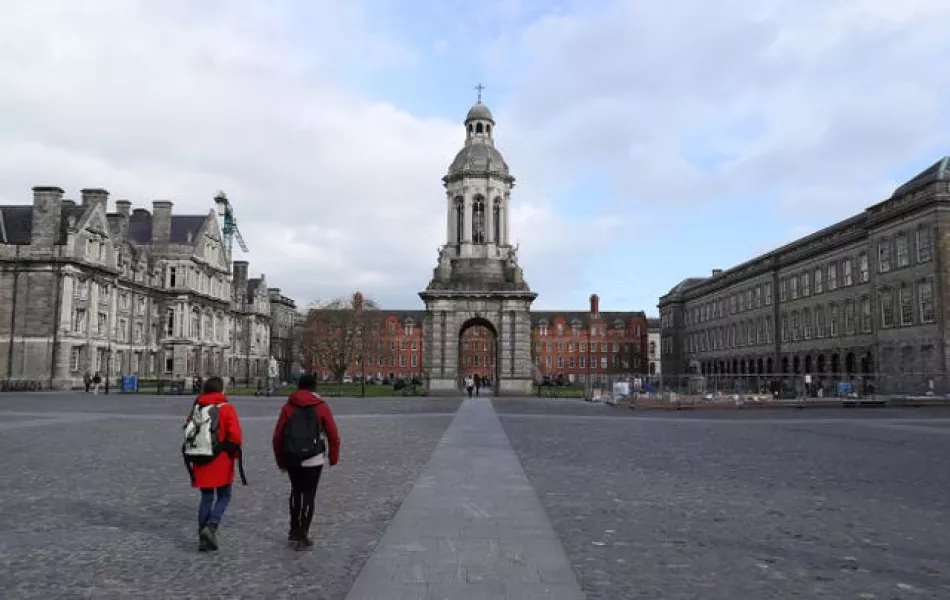The return of larger scale lectures in universities is contingent on mass vaccination, an Oireachtas committee has been told.
Prof Ciarán Ó hÓgartaigh, president of NUI Galway, said that preparing for the return of students in the next academic year involves substantial modification of campus layout, protocols in buildings as well as sanitisation and cleaning regimes.
“Noting in particular that the provision of larger scale lectures is achievable only in a very different public health environment, it is hoped that, contingent on the benefit of mass vaccination, this environment is achievable in autumn 2021,” Prof Ó hÓgartaigh said.
He also told the Oireachtas joint committee on higher education that antigen testing could play a part in the return to college.

Large-scale antigen testing will be rolled out in colleges and universities, and Prof Ó hÓgartaigh said that recruitment for testing will commence soon.
He said there will be an announcement of how that will proceed later this week.
“There are four institutions involved and different pathways in each and different testing platforms in each,” he added.
“The antigen testing is a contested space and at all times we will be informed by this research and secondly by public health advice about how effective it is and how we should implement it in the context of return of to campus in the autumn.”
John Kearney, chief executive of Cavan and Monaghan Education and Training Board (CMETB), said the greatest challenge in dealing with the pandemic were apprenticeship programmes.
“We had 251 apprentices return in March and the next phase we had 320 and that escalated to 589 in the second week of April,” Mr Kearney told the committee.
He said there are plans to have more than 700 apprentices to return.
Dr Joseph Ryan, CEO of the Technological Higher Education Association, said there is a “crisis” in the apprenticeship sector.
“You have the Covid impact which is exacerbating the backlog that was already there. It’s the mixture of practice and theory and it’s the practice, but that’s very difficult,” Mr Ryan added.
“We are trying to take a holistic approach to address that backlog.”
Mr Ryan also said that clubs and societies groups are playing a central role in integrating students and helping with the college experience.
He told the committee that a lot of attention and focus is being placed on society groups.
“Some students have been in college while other students, like those in business or social care, are the one who have been at most disadvantageous,” Mr Ryan said.
“If you are on three year programme you have seen very little of the institution over the past while and people are conscious to address that.”
Prof Ó hÓgartaigh also said that clubs and societies are crucial to students.
“We found this year in the second semester there was more activity, albeit online, in student societies and more students participated,” he added.







